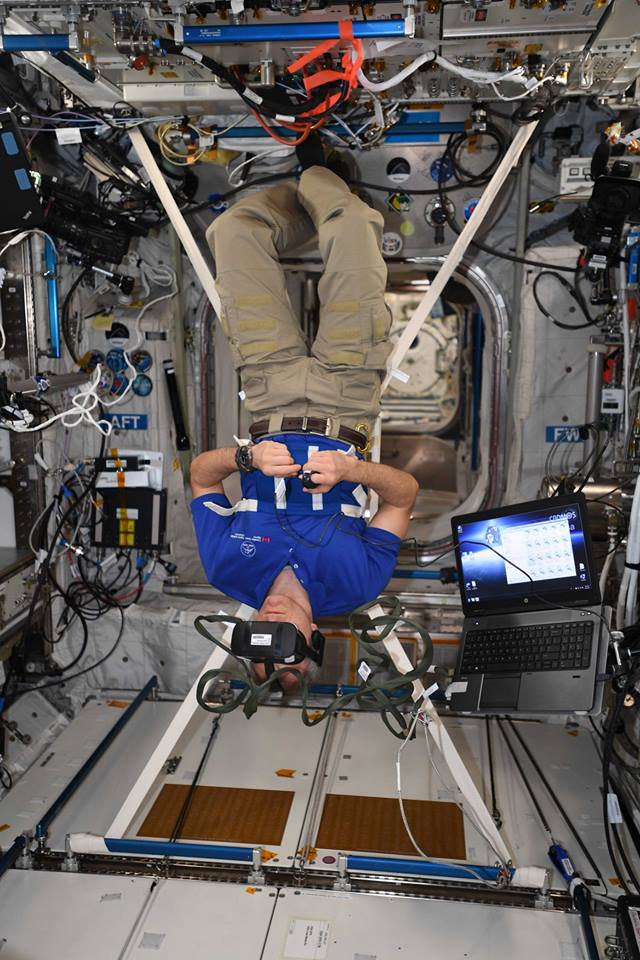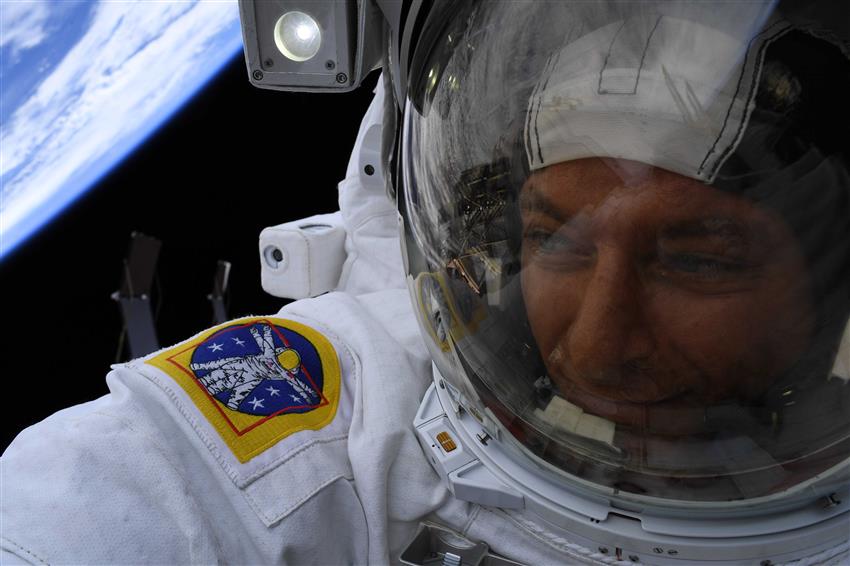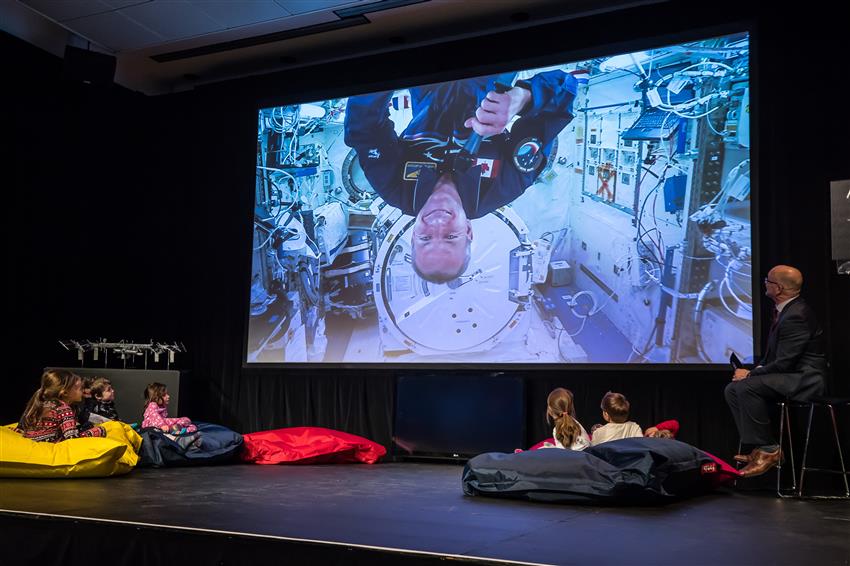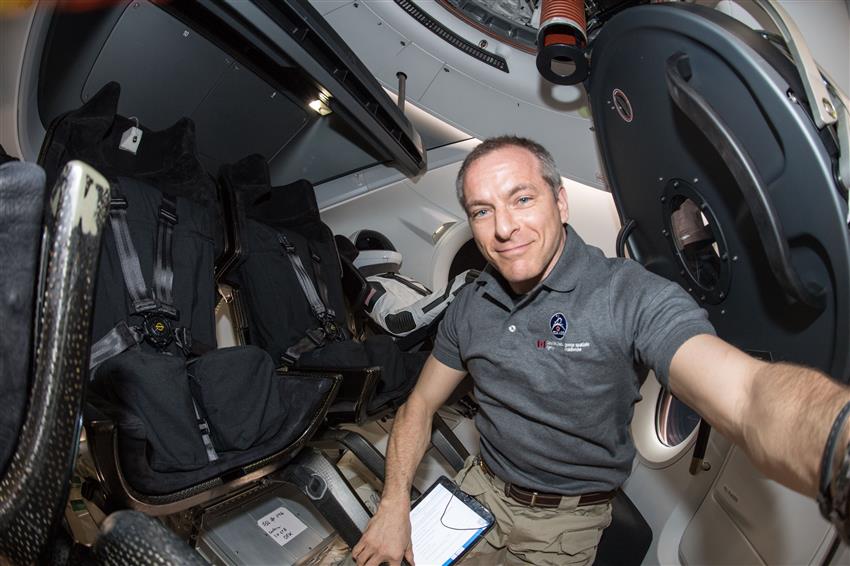David Saint-Jacques' mission launch anniversary
Today marks the one-year anniversary of Canadian Space Agency (CSA) astronaut David Saint-Jacques' launch to the International Space Station (ISS). While setting a new record for the longest Canadian astronaut mission to date, David also became the fourth CSA astronaut to conduct a spacewalk and the first to use Canadarm2 to catch a visiting spacecraft. Relive some of the highlights of his historic expedition to space.
Thank you for all the memories and photos, David!
3, 2, 1… lift-off!
On , David embarked on his 204-day mission to the ISS. David and his crewmates Oleg Kononenko (Roscosmos) and Anne McClain (NASA) made the journey to the Space Station aboard a Soyuz rocket.
David's first step into the vacuum of space
On , David completed his first-ever spacewalk. He spent over six-and-a-half hours working with NASA astronaut Anne McClain outside the Station. The pair successfully installed backup power cables for Canadarm2, upgraded the Station's wireless communications system and installed structural equipment in preparation for an external science platform.
Canadian science in space and on Earth

David Saint-Jacques participates in Vection study from the ISS. (Credit: CSA/NASA)
During his time onboard the ISS and down on Earth, David participated in numerous science activities, including seven Canadian science experiments: At Home in Space, MARROW, TBone, Vascular Echo, Vection, Wayfinding, and Radi-N2. He also tested two new Canadian technologies for the first time in space: the Bio-Monitor, an innovative smart shirt system designed to measure and record astronauts' vital signs; and the Bio-Analyzer, an innovative tool that astronauts could use to easily test different body fluids such as blood, saliva, and urine. The results from the Canadian health science activities benefit various aspects of our everyday lives, both in space and on Earth.
Great catch!
David used Canadarm2 on , to capture a cargo vehicle. It was the first time a CSA astronaut performed a cosmic catch. Resupply vehicles play a crucial role in space missions. They carry a wide variety of materials, from spare parts to science experiments, to necessities and treats, such as fresh food and care packages, for the crew living aboard the Station. Capturing and docking cargo ships using Canadarm2 is one of the most delicate activities of a mission onboard the ISS.
Sharing his mission experience
Throughout his six-month mission, David connected with Canadians across the country during over 30 events live from space. He invited us all to appreciate the beauty and fragility of our planet and encouraged our young people to develop an interest in science, technology, engineering and mathematics.
The beginning of new era of human space flight
On , SpaceX launched its Crew Dragon spacecraft on an unpiloted test flight aboard a Falcon 9 rocket. David and his crewmates closely monitored the Crew Dragon's trajectory and velocity to make sure it was performing as expected. David was the first astronaut to enter the docked spacecraft: a historic moment for the next era of human space flight!
Here are the video highlights of his mission!
One year ago, CSA astronaut David Saint-Jacques launched to the ISS for the longest Canadian astronaut mission to date (204 days). Here are a few special moments of his mission. (Credits: CSA, NASA, ESA, Gagarin Cosmonaut Training Center, Roscosmos, Trio Orange)




